A man, accused of raping a girl, was beaten to death after being pulled out of a jail by a mob at Dimapur in Nagaland. A mass protest rally against the rape was held at Dimapur this morning after which students and angry people forced into the district jail and managed to pull out the accused. The accused had allegedly raped the victim several times on February 23 and was arrested the following day following a complaint lodged by the victim. The police resorted to blank firing and fired tear gas shells but failed to control the situation, officials said.
AP
The accused was dragged naked to the main town and he died of the injuries of beatings by the public, a senior official said. An emergency cabinet meeting was held at 7 pm at the residential office of chief minister to take STOCK of the law and other situation in Dimapur. The cabinet condemned the violent incident whereby the mob took the law into their hands, leading to the death of the accused, said a release issued by CMO Media Cell.
AP
The cabinet also decided to institute a high-level committee to inquire into the incident and find out the circumstances leading to it. The committee would also inquire into the lapses or shortcomings on the part of any public servant in connection with the incident and the person or group of persons responsible for the violence leading to the death of the accused in the hands of the mob. The chief minister, being in New Delhi, the cabinet meeting was chaired by Minister for Social Security & Welfare and Parliamentary Affairs, Kiyanilie Peseyie, the CMO Media Cell added.
Colours ruled the streets today as people of all ages with faces and clothes smeared in myriad of hues celebrated Holi, a harvest festival which marks the onset of spring season.
From youngsters and the elderly to the widows of Vrindavan, the ‘gulal’ spared none as revellers danced to the accompaniment of drums. People exchanged sweets as a mark of bonhomie.
The festival is celebrated to commemorate the Hindu mythological tale of Prahlada emerging unscathed from the flames despite being drawn into the fire by demoness Holika. The Hindu month of ‘Phagun’ ended yesterday with ‘Holika Dahan’ and ‘Chaita’ starting today.
A relatively warm day paved way for a perfect Holi, as coloured water drenched people inside and outside homes, bidding adieu to winter.
President Pranab Mukherjee and Prime Minister Manmohan Singh have greeted people on the occasion of Holi, saying the festival provided an opportunity to strengthen the bonds of unity and friendship.
The Prime Minister yesterday celebrated the festival with his staff for the first time during his tenure in UPA-II.
Congress chief Sonia Gandhi joined the celebrations at her residence here.
Tight security arrangements were also put in place and hospitals made arrangements to deal with any extra rush of people.
In Rajasthan, the festival was celebrated peacefully and no untoward incident took place. Pink city Jaipur erupted in a rainbow of colours as enthusiastic revellers thronged streets.
Chief Minister Vasundhara Raje joined the festivities with her family members in Delhi.
In Patna, political bigwigs including Chief Minister Nitish Kumar and RJD president Lalu Prasad kept away from the celebrations. Their official residences at 1, Anne Marg and 10, Circular Road, respectively wore a deserted look.
In the national capital, police personnel were deployed across the city. Police had issued warning against hooliganism in the guise of revelry. Commuters faced inconvenience in the morning as a handful of buses plied and Metro service resumed only after 2 PM.
Dilip Shanghvi, the billionaire founder of drugmaker Sun Pharma, ended Reliance Industries promoter Mukesh Ambani’s eight-year run as India’s richest billionaire on Wednesday, according to Forbes. The Bloomberg Billionaires Index, formed in 2012, also ranked Mr Shanghvi ahead of Mr Ambani for the first time ever.
According to real time data on Forbes, 59-year old Mr Shanghvi’s net worth at $21.5 billion is $1.1 billion more than Mr Ambani’s net worth of $20.4 Billion. Mr Shanghvi is a self-made billionaire, while Mr Ambani inherited the business from his father the late Dhirubhai Ambani.
Mr Shanghvi added billions to his net worth in the first two months of this year. According to Bloomberg, his fortune went up by $4.5 billion this year, while Mr Ambani’s net worth increased by just $153 million since the start of 2015.
The rapid growth in Mr Shanghvi’s net worth was on account of the stellar MARKET performance of his company Sun Pharma, India’s biggest drugmaker by market value.
Over the last three months, Sun Pharma shares have gained 22 per cent as against a 7.5 per cent drop in RIL. Mr Ambani’s company has underperformed the BSE Sensex as well.
RIL has underperformed because its business model is commodity driven. Refining and petrochemicals contribute up to 95 per cent to the company’s net sales and 85 per cent to its operating profit. The 50 per cent slump in global CRUDE OIL prices has therefore impacted RIL heavily. The December quarter marked RIL’s first profit drop in nine quarters.
On the other hand, Sun Pharma operates in the global healthcare industry, where Indian companies have a pricing advantage over their global peers. The drugmaker derives nearly 60 per cent of its sales from US.
Sun Pharma, with a MARKET cap of Rs. 2.1 trillion, is much smaller than RIL, which has a MARKET value of Rs. 2.92 trillion. The smaller size, however, is not an impediment for Mr Shanghvi because he owns nearly 61 per cent stake in Sun Pharma as compared to the 45 per cent stake the 57-year old Mr Ambani holds in RIL.
Many of Sun Pharma’s recent bets have proved successful aiding its STOCK performance. In April 2014, Sun Pharma acquired its rival Ranbaxy Labs from Japan’s Daiichi Sankyo for $4 billion last year, making it the world’s fifth-largest maker of generic drugs.
Reliance has also been INVESTING heavily in consumer-facing areas like retail and telecom to expand beyond refining and petrochemicals. RIL’s retail business posted its first annual profit last year, but the company is yet to roll out its telecom services despite large investments.
I watched ‘India’s Daughter’ last week prepared to hate it. NDTV had been approached by independent filmmaker Leslee Udwin regarding her documentary for the BBC, part of a global initiative on Women’s Day to focus attention on sexual crimes against women and how societal attitudes must change. It was a film, she said, had been made as a tribute to Nirbhaya and the thousands of protesters that came out after this ghastly crime in a spontaneous show of solidarity, scenes she said she had never seen in any other country. Leslee had asked to use our footage of the time, as did many other international news channels, and now that the BBC had agreed for it to be part of a global initiative, she requested NDTV to be the Indian broadcast partner.
However, our final decision to carry it would depend on it meeting our standards, editorially, ethically and legally and most importantly, with the full consent of Nirbhaya’s family.
Why should we give this disgusting man any publicity were my first thoughts as I sat down to watch it? 59 minutes later, I had changed my mind.
While my opinion of Mukesh… a monster of a human being… remained unchanged, what sickened me the most was how ‘normal’ he sounded. His ‘defence’: it was her fault… words which were echoed further into the documentary by his two lawyers, officers of the court. The difference between Mukesh and them was that he committed this heinous crime, yet their mental processes seemed exactly the same. Worse, these arguments are ones we have all heard often made by different politicians, judges, police officers regardless of gender. What shone through, however, was the sheer heroism of “India’s Mother and Father”, as I referred to them in my programme, Nirbhaya’s parents. Asha and Badri were the true torchbearers of courage and dignity amid their deep, deep grief; their words are the ones you remember after you watch this documentary, not Mukesh and his lawyers.
Others as well – Nirbhaya’s young tutor, the doctor who examined her, the police constable who talked of how so many people stopped to stare at the gruesome accident but no one came forward to help, Justice Leila Seth, interviewed in painstaking detail by Leslee over two years. It was their voices that lingered. Contrary to the perception the title may create, the story may be set in India but statistics shown in the documentary make it clear this is a GLOBAL problem.
It was absolutely essential for us however that whatever the editorial justification, Nirbhaya’s parents’ opinion and consent be solicited before we even considered airing it. Leslee Udwin told us the parents had seen the entire documentary and she had their written approval, but I wanted to speak to Asha, Nirbhaya’s mother myself. We called her to ask and mentioned we were doing a TV programme on this documentary. Their response was instant: “We want to be part of it. We spoke to Leslee for the documentary because we didn’t want the nation to forget and we want to come on your show for the same reason.”
I insisted it would be too traumatic for them to hear us discuss the rapist’s mindset. “It doesn’t matter to me at all, I have kept a stone on my heart,” said Asha. I agreed, but insisted she should join us only in the second part when we would see what the lawyers said. “We heard them say this in court too, they want publicity but my question is why the Supreme Court hasn’t even begun hearing the appeal?” asked Asha – a question for which neither I nor my panelists had any answer.
On the panel for the show, besides Nirbhaya’s parents and Leslee Udwin were three women, coincidentally all from the BJP – Kiran Bedi, Pinki Anand, Additional Solicitor General of India and Vani Tripathi, member of the Censor Board plus Dushyant Dave of the Supreme Court Bar Association.
The first question I asked Leslee Udwin (whom I had met for the first time just the previous day) was if she interviewed the rapist to glorify him for TRPs?
She was outraged; perhaps that’s why she revealed her own trauma on the show. In her words , “…what brought me to India was respect, admiration and being inspired by those extraordinary protesters, the ordinary men and women of India, who went out on the streets, who led the world by example because I, I myself have been raped. And I say this, it’s very important that I say this, because there is no shame that should adhere to me as a result of that, the shame is the rapist’s. What I’ve discovered on my journey, and if I hadn’t met with these rapists, I wouldn’t have come to the answer I’ve come to, the deep insight I’ve gained, which is that the disease is not the rapist’s, the disease is the society and we, as a part of that society, must take responsibility for encouraging men to see women as of no value. You asked me why did I have to meet with the rapists – because I knew to get a meaningful answer to my question, ‘why do men rape? Why does violent rape happen?’ I had to go to the source. I had to hear it from them. I had to sit and ask them a hundred questions about who the significant women in their lives were, what they think of women, how a good woman should behave, what makes a bad women. I needed to understand the mentality otherwise I would have made a superficial documentary. ”
Within a few hours of our programme, the matter had escalated. MPs across parties, BJP, Congress, JDU demanded a ban, women’s activists asked for it not to be shown, Twitter gave its verdict, a government ban plus court order meant NDTV would not air it on the 8th as scheduled.
Leslee Udwin came to meet me before she left, “My lawyer has told me I may be arrested, I may never return to India again,” she said. “I’m devastated my film won’t be seen in India but I’m happy about one thing.”
“What?” I asked. “Nirbhaya’s father called my producer this morning, “she said, “Badriji asked her to tell me not to worry and thanked me for making the film. That’s all the validation, I need.”
Will the controversy around India’s Daughter focus our nation’s attention once again not just on Nirbhaya and her case, but on the case of Zaheera in Lucknow, gang raped 10 years ago at 13 but still waiting for her trial to begin ? Will we look inwards and focus on how India treats all its Daughters? Will we shift our outrage over a foreign woman daring to show us unpalatable truths to the reality of what’s being said? Whatever your opinion of the documentary – banal, stereotypical, patronizing – even if you hate it, if it makes us look at the reality around us, perhaps this sound and fury would have achieved.
Disclaimer: The opinions expressed within this article are the personal opinions of the author. NDTV is not responsible for the accuracy, completeness, suitability, or validity of any information on this article. All information is provided on an as-is basis. The information, facts or opinions appearing in the article do not reflect the views of NDTV and NDTV does not assume any responsibility or liability for the same.
Agartala: Intellectuals, singers, writers and political activists staged a protest here on Sunday to denounce the killing of a Bangladeshi-American blog-writer in Dhaka last week
“We strongly condemn the killing,” said youth leader Amal Chakraborty, one of the organisers.
Avijit Roy (42), a bio-engineer working in the US, was hacked to death by two attackers wielding machetes in Bangladesh’s capital Dhaka on February 26, when he was leaving a book fair with his wife Rafida Ahmed Banna, who was also seriously wounded in the attack.
Religious radicals had been threatening Avijit for his active campaign against Islamist extremism and for improving secularism in Bangladesh.
IANS
Taking cue from a Delhi-based lawyer who has appealed with a city court against online sale of vibrators in the country, another lawyer from the city has come up with an appeal that even sale of teddy bears should be banned in India.
“At a time when the court is seriously considering stopping women of the country to have a right to pleasure, how can little girls be allowed to play with teddies? Kids like to hug their teddies, take them to bed. They are comforters for them that last long after they have left the mother’s lap,” advocate Myopia said.
“An adult woman who can access the internet and order a vibrator for pleasure… is a potential threat to the country’s already tumultuous gender balance. How can a woman be allowed to be independent in seeking pleasure? It is all wrong,” said Mardana Singh, chief of Rashtryia Andolan Of Purush Equality, in a rejoinder to the Teddy Bear case.
Upholding Mardana Singh’s re-joinder, advocate Myopia said, “Teddy bears are not even bears. To begin with they are not even Indian. This is a twisted method used by western parents to spoil girls and ingrain a sense of self-indulgence. Toys like teddy bears should be banned for girls all across India. Girls should rightfully only be allowed to play with kitchen sets.”
The two parallel cases lying with the city court will be heard consecutively later this month. So ladies, whether you want to buy a vibrator, a teddy bear or whatever else you think you should solely for comfort or fun, do it by March.
The Teddy Police is getting armed with arsenal.
NEW DELHI: Retail prices of leafy vegetables like spinach and other winter staples such as carrots, cauliflower and peas have shot up as much as 67 per cent in the national capital over the last five days due to unseasonal rains.
Retail prices of vegetables are expected to be under pressure for the next two days due to tight supplies as the WHOLESALEmarkets will remain closed for Holi on Friday, traders said.
However, there is no supply constraint for potato and onion, and their prices are stable, a senior Union agriculture ministry official said.
The occasion of Holi is a colourful one. It signifies the end of evil, and the triumph of truth. It also signifies love between Radha and Krishna – the couple with eternal love.
Here are some messages that you can send to your loved ones this Holi.
May this Holi be the harbringer of love, colours and sweetness in your life.
Khaa key gujiya, pee key bhaang, laaga k thora thora sa rang, bajaa ke dholak aur mridang, khele holi hum tere sang. Holi Mubarak
Lagake thoda gulaal ka rang, Khushiya manao sab sang-sang, Gaana bajana dhol mridang, Holi manao khoob malang. Happy Holi.
If wishes come in rainbow colours then I would send the brightest one to say Happy Holi.
Bright colours, water balloons, tasty gujiyas and melodious songs are the ingredients of perfect Holi. Wish you a very happy and wonderful Holi.
May God gift you all the colours of life, colours of joy, colours of happiness, colours of friendship, colours of love and all other colours you want to paint in your life. Happy Holi!
Just like a red rose that fills the world with beauty & fragrance… You have made my life so beautiful by being in it. On Holi, the festival of colours & joy I want to say thank you for all the love & smiles you’ve brought to my life. Happy Holi.
May god gift you all the colours of life, colours of joy, colours of happiness, colours of friendship, colours of love n all other colours you want to paint in your life. Happy Holi.
When love is in the air, you know it is time to celebrate Holi!Happy Holi!
Holi is not only about colours and sweets. It reminds of the divine and eternal love of Krishna and Radha. May this Holi be filled with love and blessings from the divine. Happy Holi
May the colours of love, and the fragrance of gulaal fill you life with joy. Happy Holi.
Even though we can’t meet this Holi, here is a wish full of colours to fill you life with joy. Happy Holi.
Holi mein rang barsao, kuch phoolon ka, kuch pyaar ka. Sangeet mein sab doob jaao, yehi maza hai tyohaar ka. Happy Holi
Rango aur paar se bharpoor rahe aapki zindagi. Holi ki shubhkamnayein.
Dhol, thakake, rang aur pyaar. Mubarak ho aapko Holi ka tyohaar.
We wish all our readers of Real News of India a very HAPPY HOLI!!!!!
Play clean Holi
United Nations: The remarks by one of the Delhi gang-rape convict blaming the victim for the assault are “unspeakable”, UN Secretary-General Ban Ki-moon’s spokesperson has said, stressing the need for men to get involved in halting violence against women.
Ban’s spokesperson Stephane Dujarric refused to further comment on the remarks made by Mukesh Singh, the driver of the bus in which the 23-year-old paramedical student was brutally gang-raped by six men on December 16, 2012.
“I’m not going to comment on the unspeakable comments that were made by the person accused of raping this girl, but I think the Secretary-General has spoken very clearly on the need to halt violence against women and on the need for men to get involved in halting violence against women and decrying it loud and clear every time it occurs,” Dujarric told reporters.
In an interview for a BBC documentary on the rape of the girl, Singh appeared unrepentant for the abhorrent crime.
Amid wide public outrage over Singh’s controversial remarks, the Indian government has banned the documentary on the 2012 gang rape ‘India’s Daughter’.
The government has secured a court injunction to stop the airing of the documentary across all media platforms in India.
When asked to comment on the Indian government’s decision to not air the documentary and freedom of the press, Dujarric refused to make any comments.
“I’m not going to get into it. Our position on freedom of the press is clear. Some countries have different rules regarding the viewing of evidence during judicial proceedings. I’m not aware of the full details of it, so I’ll leave it at that,” he said yesterday.
PTI
New Delhi: A controversial BBC documentary featuring one of the December 16, 2012 gang-rape convicts has been uploaded on video sharing website YouTube by an individual.
However, the BBC site says “BBC iPlayer TV programmes are available to play in the UK only”.
The Home Ministry on Wednesday said orders were obtained from court to restrain the broadcast of the documentary.
The documentary “India’s daughter” by British film-maker Leslee Udwin has kicked up a storm over the interview of one of the six men who raped the 23-year-old trainee physiotherapist on December 16, 2012 on board a moving bus in Delhi. She later died in a Singapore hospital where she had been airlifted for specialised treatment.
IANS

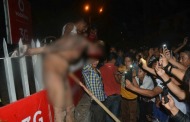
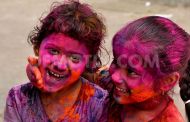


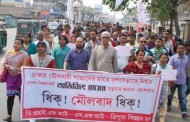

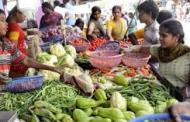

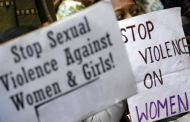






Recent Comments